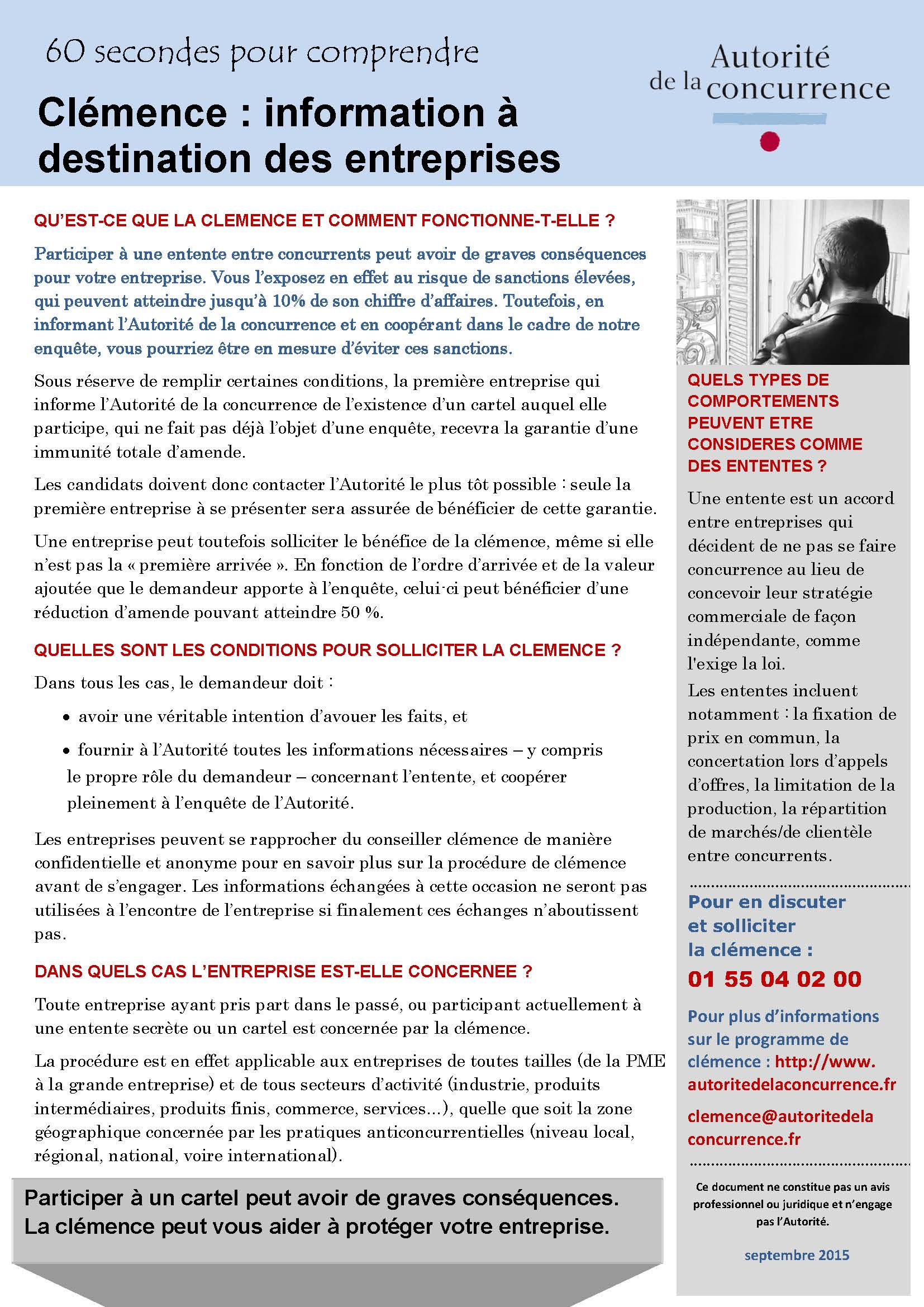Why should I apply for leniency?
If you delay submitting a leniency application yourself, you run the risk of being “overtaken” by a competitor that is pursuing the same objective: to secure its risks.
Your place in the leniency queue is key: the first to arrive may obtain immunity or a substantial reduction in fines, but latecomers risk paying a high price!
Why should I apply for leniency?
If your undertaking is or was part of a cartel, you may avoid a high fine by reporting the infringement and providing the Autorité with evidence.
Taking action is in your own interest. Not reporting an infringement exposes you to a twofold risk:
- a third party (competitor, former employee, etc.) disclosing the infringement to the Autorité;
- an investigation being opened by the Autorité (possibly including dawn raids).
Full immunity from fines applies to the undertaking that is the first to contact the Autorité, hence the importance of taking action without delay as soon as you become aware of the cartel.
The other undertakings involved in the cartel, which only approach the Autorité at a later stage, can only benefit from partial immunity from fines (depending on their place in the leniency queue) and only on condition they provide new information and evidence in relation to that already available to the Autorité.

Is there still a risk even if the cartel has ended?
Be careful! Your risk is even greater after the cartel has ended. Your former fellow cartel members will be even more inclined to apply for leniency as you will now have become real competitors and they will also want to minimise their risks.
Not submitting a leniency application with the Autorité is therefore a major risk for an undertaking that was a member of a cartel that has now ended.

When should I apply for leniency?
Any company that was or is part of a secret agreement or cartel may be concerned by leniency.
The leniency procedure is open to undertakings of all sizes (from SMEs to large corporations) and in all sectors (manufacturing, intermediate products, finished products, trade, services, etc.), regardless of the geographic area affected by the anticompetitive practices (local, regional, national or even international).
Leniency applications are often made by multinationals, triggered in most cases by a change of majority shareholder or a change in strategy at one or more of the cartel members following an M&A transaction. SMEs, hampered by a lack of knowledge to defend their interests and the means to call on legal professionals, may miss their chance to benefit from leniency.
However, SMEs should be aware the rules can be used both offensively (by applying for first-rank leniency) and defensively (by applying for second-rank leniency). For assistance, contact the Leniency Officer.
Read our SME guide and visit our dedicated SME space (in French).

